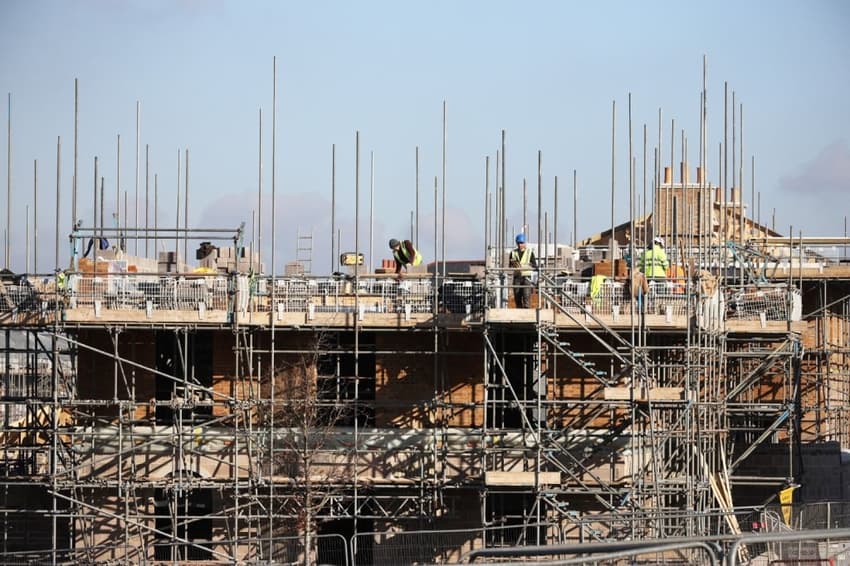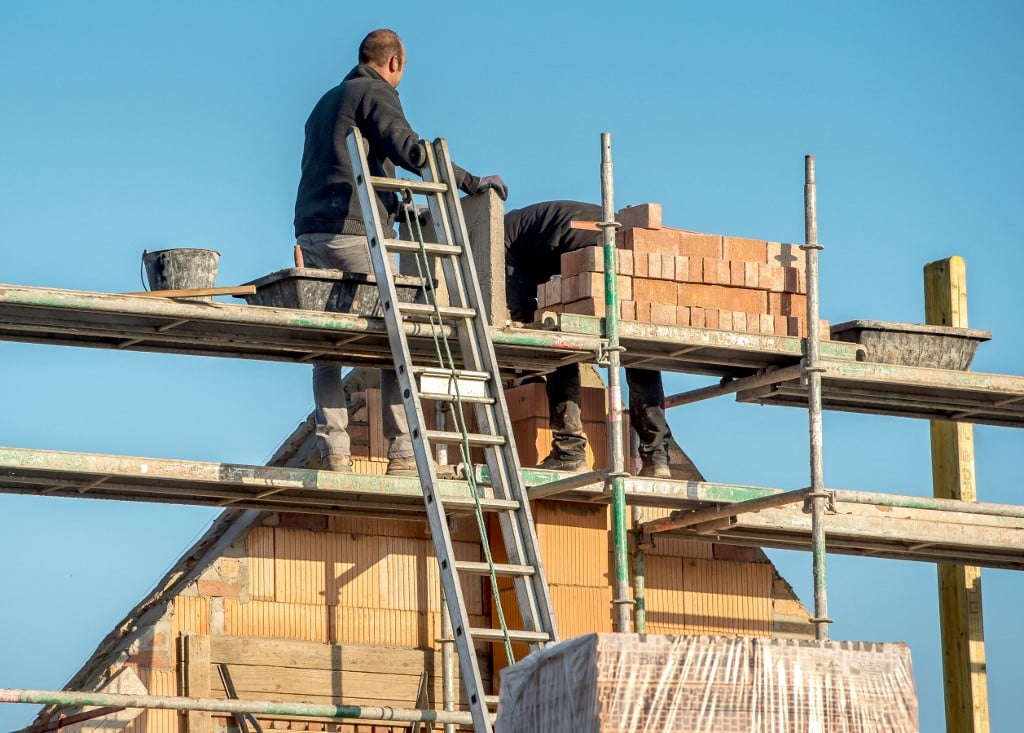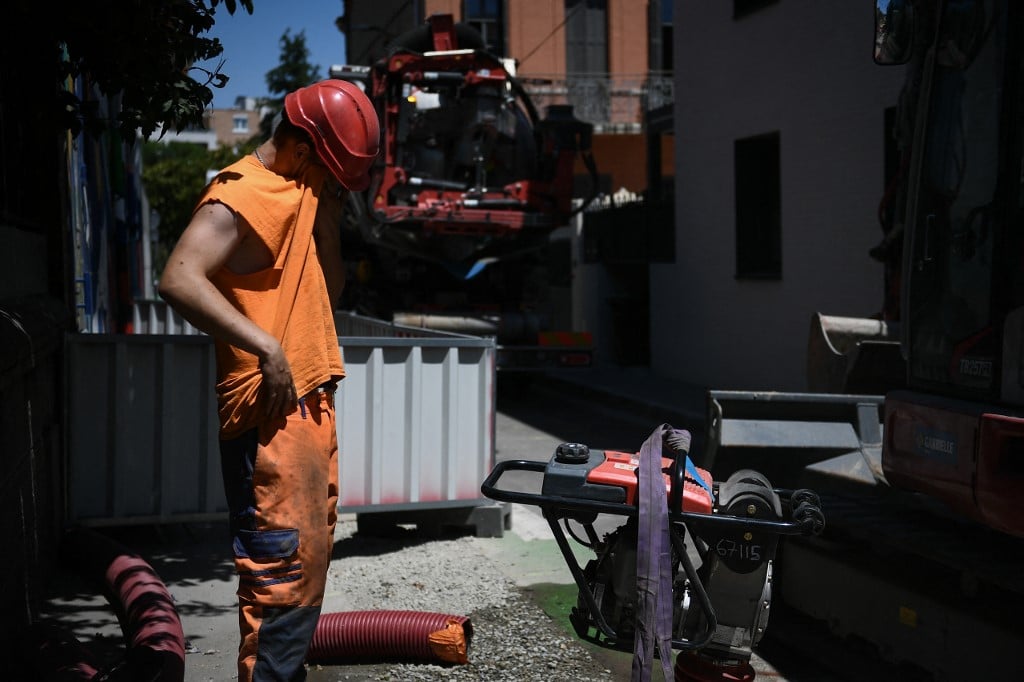What’s happening with Italy’s building superbonus in 2024?

With a potential amendment to Italy’s ‘superbonus’ in the news, what could this mean for homeowners - and is the government planning to solve other problems with the scheme?
If you’re reading this article, chances are you’re already familiar with the history of Italy’s ‘superbonus 110', a government scheme offering generous discounts to homeowners carrying out renovation works.
Since the bonus’s introduction in 2020, countless people mid-renovation have been left high and dry as major credit transfer backlogs stalled their projects indefinitely and left thousands of construction businesses at risk of bankruptcy.
Further controversy emerged in late 2022 as a series of hastily approved amendments aimed at alleviating the scheme’s burden on public finances meant that the maximum rebate many of these claimants could access was slashed by as much as 20 percent.
But as the year draws to a close, an amendment being put forward proposes that homeowners who started their projects before last year’s changes could continue to benefit from the original 110-percent discount after all.
What’s the amendment about?
The amendment, proposed by the Forza Italia party – a member of the coalition government – would effectively allow claimants who have benefitted from the original 110-percent rebate in 2023 to continue doing so for the first half of 2024, until June 30th.

After undergoing sweeping changes earlier this year, the superbonus may soon be subject to yet another amendment. Photo by Philippe HUGUEN / AFP
However, according to the latest reports, the extension would only apply to projects that are at least 60 percent complete by the end of 2023 (and have been assessed as such under their Stato Avanzamento Lavori, or SAL).
Who would this affect?
The maximum available rebate was slashed from up to 110 percent of the total cost of work to a maximum of 90 percent as of January 1st 2023.
But the following two categories of claimants were allowed to continue benefitting from the original maximum rebate until December 31st 2023:
- Owners of independent or single-family homes (case unifamiliari) that had completed at least 30 percent of the planned renovation work by September 30th 2022, and
- Condominiums or apartment buildings that had handed in their Commencement of Work Certificate (Comunicazione di Inizio Lavori, CILA) by December 31st 2022.
If the amendment passes, people in these two categories would be able to continue to claim the maximum 110-percent rebate until June 30th 2024 provided they reach the 60-percent completion status by the end of this year.
There are currently no clear indications as to how the cabinet will rule on the proposal, which, if passed, would fall under Italy’s 2024 Budget Law.
READ ALSO: How will Italy's 2024 budget affect your finances?
While Economy Minister Giancarlo Giorgetti said last week that an “extension of the measures [...] in their current form” wasn’t in the government’s plans, the amendment is reportedly still on the table.
What else can we expect in 2024?
Under the December 2022 amendments, the superbonus will only apply to the renovation of condominiums and small apartment buildings, with the scheme’s maximum available rebate dropping from 90 percent of the total cost of work to 70 percent from January 1st 2024.
Further, claimants will still only have one way to claim the bonus in 2024; that is in the form of tax deductions (detrazione fiscale) spread over four years, as the sale of credit to banks or construction companies was permanently scrapped last February.
Are there any plans to unlock ‘stuck’ credit?
The superbonus has been plagued by credit transfer issues ever since 2021, when banks stopped buying up credits following billions’ worth of fraudulent claims. This created major bottlenecks within the system which ultimately ended up stalling thousands of projects.
Nearly three years on from the start of the crisis, the credit logjam seems to be nowhere near an immediate resolution and, despite a series of government interventions over the past year, owners and construction companies still have just a handful of viable options to sell previously accrued credit.

Major credit bottlenecks persist within the superbonus system nearly three years after the start of the crisis. Photo by Valentine CHAPUIS / AFP
After a number of national banks resumed buying credits over the summer, postal service provider Poste Italiane reopened their purchasing channels in early October.
That said, the institute is currently only accepting credits under 50,000 euros and coming exclusively from homeowners (building companies and other third parties have been excluded from the service).
Finally, the creation of a new trading platform by energy giant Enel X – a project that the government had previously identified as one of the main solutions to the logjam – was permanently scrapped in early September.
Though there are no new official figures regarding blocked credits, Italy’s Builders Association (ANCE) estimates that these now amount to 30 billion euros, with some 30,000 businesses and around 300,000 households being directly affected by the impasse.
Economy Minister Giancarlo Giorgetti recently said that his ministry was evaluating “instruments” that “should contribute to remove obstacles to [credit] transfer”, without giving any further details.
Comments
See Also
If you’re reading this article, chances are you’re already familiar with the history of Italy’s ‘superbonus 110', a government scheme offering generous discounts to homeowners carrying out renovation works.
Since the bonus’s introduction in 2020, countless people mid-renovation have been left high and dry as major credit transfer backlogs stalled their projects indefinitely and left thousands of construction businesses at risk of bankruptcy.
Further controversy emerged in late 2022 as a series of hastily approved amendments aimed at alleviating the scheme’s burden on public finances meant that the maximum rebate many of these claimants could access was slashed by as much as 20 percent.
But as the year draws to a close, an amendment being put forward proposes that homeowners who started their projects before last year’s changes could continue to benefit from the original 110-percent discount after all.
What’s the amendment about?
The amendment, proposed by the Forza Italia party – a member of the coalition government – would effectively allow claimants who have benefitted from the original 110-percent rebate in 2023 to continue doing so for the first half of 2024, until June 30th.

However, according to the latest reports, the extension would only apply to projects that are at least 60 percent complete by the end of 2023 (and have been assessed as such under their Stato Avanzamento Lavori, or SAL).
Who would this affect?
The maximum available rebate was slashed from up to 110 percent of the total cost of work to a maximum of 90 percent as of January 1st 2023.
But the following two categories of claimants were allowed to continue benefitting from the original maximum rebate until December 31st 2023:
- Owners of independent or single-family homes (case unifamiliari) that had completed at least 30 percent of the planned renovation work by September 30th 2022, and
- Condominiums or apartment buildings that had handed in their Commencement of Work Certificate (Comunicazione di Inizio Lavori, CILA) by December 31st 2022.
If the amendment passes, people in these two categories would be able to continue to claim the maximum 110-percent rebate until June 30th 2024 provided they reach the 60-percent completion status by the end of this year.
There are currently no clear indications as to how the cabinet will rule on the proposal, which, if passed, would fall under Italy’s 2024 Budget Law.
READ ALSO: How will Italy's 2024 budget affect your finances?
While Economy Minister Giancarlo Giorgetti said last week that an “extension of the measures [...] in their current form” wasn’t in the government’s plans, the amendment is reportedly still on the table.
What else can we expect in 2024?
Under the December 2022 amendments, the superbonus will only apply to the renovation of condominiums and small apartment buildings, with the scheme’s maximum available rebate dropping from 90 percent of the total cost of work to 70 percent from January 1st 2024.
Further, claimants will still only have one way to claim the bonus in 2024; that is in the form of tax deductions (detrazione fiscale) spread over four years, as the sale of credit to banks or construction companies was permanently scrapped last February.
Are there any plans to unlock ‘stuck’ credit?
The superbonus has been plagued by credit transfer issues ever since 2021, when banks stopped buying up credits following billions’ worth of fraudulent claims. This created major bottlenecks within the system which ultimately ended up stalling thousands of projects.
Nearly three years on from the start of the crisis, the credit logjam seems to be nowhere near an immediate resolution and, despite a series of government interventions over the past year, owners and construction companies still have just a handful of viable options to sell previously accrued credit.

After a number of national banks resumed buying credits over the summer, postal service provider Poste Italiane reopened their purchasing channels in early October.
That said, the institute is currently only accepting credits under 50,000 euros and coming exclusively from homeowners (building companies and other third parties have been excluded from the service).
Finally, the creation of a new trading platform by energy giant Enel X – a project that the government had previously identified as one of the main solutions to the logjam – was permanently scrapped in early September.
Though there are no new official figures regarding blocked credits, Italy’s Builders Association (ANCE) estimates that these now amount to 30 billion euros, with some 30,000 businesses and around 300,000 households being directly affected by the impasse.
Economy Minister Giancarlo Giorgetti recently said that his ministry was evaluating “instruments” that “should contribute to remove obstacles to [credit] transfer”, without giving any further details.
Join the conversation in our comments section below. Share your own views and experience and if you have a question or suggestion for our journalists then email us at [email protected].
Please keep comments civil, constructive and on topic – and make sure to read our terms of use before getting involved.
Please log in here to leave a comment.